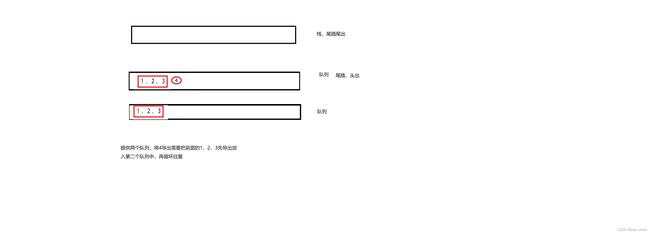一、什么是宏函数?通过宏定义的函数是宏函数。如下,编译器在预处理阶段会将Add(x,y)替换为((x)*(y))#defineAdd(x,y)((x)*(y))#defineAdd(x,y)((x)*(y))intmain(){inta=10;intb=20;intd=10;intc=Add(a+d,b)*2;cout<
C语言如何定义宏函数?
小九格物
c语言
在C语言中,宏函数是通过预处理器定义的,它在编译之前替换代码中的宏调用。宏函数可以模拟函数的行为,但它们不是真正的函数,因为它们在编译时不会进行类型检查,也不会分配存储空间。宏函数的定义通常使用#define指令,后面跟着宏的名称和参数列表,以及宏展开后的代码。宏函数的定义方式:1.基本宏函数:这是最简单的宏函数形式,它直接定义一个表达式。#defineSQUARE(x)((x)*(x))2.带参
c++ 的iostream 和 c++的stdio的区别和联系
黄卷青灯77
c++算法开发语言iostreamstdio
在C++中,iostream和C语言的stdio.h都是用于处理输入输出的库,但它们在设计、用法和功能上有许多不同。以下是两者的区别和联系:区别1.编程风格iostream(C++风格):C++标准库中的输入输出流类库,支持面向对象的输入输出操作。典型用法是cin(输入)和cout(输出),使用>操作符来处理数据。更加类型安全,支持用户自定义类型的输入输出。#includeintmain(){in
C语言 判断回文数
Y雨何时停T
c语言学习
一,回文数概念“回文”是指正读反读都能读通的句子,它是古今中外都有的一种修辞方式和文字游戏,如“我为人人,人人为我”等。在数学中也有这样一类数字有这样的特征,成为回文数。设n是一任意自然数。若将n的各位数字反向排列所得自然数n1与n相等,则称n为一回文数。例如,若n=1234321,则称n为一回文数;但若n=1234567,则n不是回文数。二,判断回文数实现思路一:数组与字符串将数字每一位按顺序放
C语言代码练习(第十九天)
小小框架
C语言C语言重点练习c语言
今日练习:52、有一个已经排好序的数组,要求输入一个数后,按原来排序的规律将它插入数组中53、输出"魔方阵"。所谓魔方阵是指它的每一行,每一列和对角线之和均相等。54、找出一个二维数组中的鞍点,即该位置上的元素在该行上最大、在该列上最小。也可能没有鞍点。有一个已经排好序的数组,要求输入一个数后,按原来排序的规律将它插入数组中运行代码intmain(){intarr[11]={1,3,9,12,15
c++ 内存处理函数
heeheeai
c++开发语言
在C语言的头文件中,memcpy和memmove函数都用于复制内存块,但它们在处理内存重叠方面存在关键区别:内存重叠:memcpy函数不保证在源内存和目标内存区域重叠时能够正确复制数据。如果内存区域重叠,memcpy的行为是未定义的,可能会导致数据损坏或程序崩溃。memmove函数能够安全地处理源内存和目标内存区域重叠的情况。它会确保在复制过程中不会覆盖尚未复制的数据,从而保证数据的完整性。效率:
C语言---程序设计练习题目及学习方法1
Wanyu677
C语言c语言学习方法算法
学习方法要多练习在这些题目中的代码和题目自己动手去敲练习也是在熟悉语法,写代码第一步就是熟悉语法练习是在锻炼编程思维,把实际问题转换为代码的能力学会画图画图去理解内存,理解指针这些比较难懂的知识画图可以更好的理清思路辅助理解,强化理解学会调试借助调试,更好的理解代码和感知代码找出代码中的bug和程序逻辑(1)自增自减运算符inta=5,b,c,i=10;b=a++;c=++b;printf("a=
【C语言】- 自定义类型:结构体、枚举、联合
Cavalier_01
C语言
【C语言】:操作符(https://mp.csdn.net/editor/html/115218055)数据类型(https://mp.csdn.net/editor/html/115219664)自定义类型:结构体、枚举、联合(https://mp.csdn.net/editor/html/115373785)变量、常量(https://mp.csdn.net/editor/html/11523
华南农业大学C语言oj第八章
黑兔子撒
C语言C语言华南农业大学编程程序
18058一年的第几天时间限制:1000MS内存限制:65535K提交次数:0通过次数:0题型:填空题语言:G++;GCC;VCDescription定义一个结构体类型表示日期类型(包括年、月、日)。程序中定义一个日期类型的变量,输入该日期的年、月、日,计算并输出该日期是一年的第几天。#include struct DATE { _______________________ }; int da
linux gcc 格式,Linux下gcc与gdb简介
神奇的战士
linuxgcc格式
gcc编译器可以将C、C++等语言源程序、汇编程序编译、链接成可执行程序。gdb是GNU开发的一个Unix/Linux下强大的程序调试工具。linux下没有后缀名的概念。但gcc根据文件的后缀来区别输入文件的类别:.cC语言源代码文件.a由目标文件构成的库文件.C、.cc、.cppC++源码文件.h头文件.i经过预处理之后的C语言文件.ii经过预处理之后的C++文件.o编译后的目标文件.s汇编源码
Lua 与 C#交互
z2014z
luac#开发语言
Lua与C#交互前提Lua是一种嵌入式脚本语言,Lua的解释器是用C编写的,因此可以方便的与C/C++进行相互调用。轻量级Lua语言的官方版本只包括一个精简的核心和最基本的库,这使得Lua体积小、启动速度快,也适合嵌入在别的程序里。交互过程C#调用Lua:由C#文件调用Lua解析器底层dll库(由C语言编写),再由dll文件执行相应的Lua文件。Lua调用C#:1、Wrap方式:首先生成C#源文件
⭐算法入门⭐《归并排序》简单01 —— LeetCode 21. 合并两个有序链表
英雄哪里出来
《LeetCode算法全集》算法数据结构链表c++归并排序
饭不食,水不饮,题必须刷C语言免费动漫教程,和我一起打卡!《光天化日学C语言》LeetCode太难?先看简单题!《C语言入门100例》数据结构难?不存在的!《数据结构入门》LeetCode太简单?算法学起来!《夜深人静写算法》文章目录一、题目1、题目描述2、基础框架3、原题链接二、解题报告1、思路分析2、时间复杂度3、代码详解三、本题小知识一、题目1、题目描述 将两个不降序链表合并为一个新的不降
PAT Advanced 1015. Reversible Primes (C语言实现)
OliverLew
我的PAT系列文章更新重心已移至Github,欢迎来看PAT题解的小伙伴请到GithubPages浏览最新内容。此处文章目前已更新至与GithubPages同步。欢迎star我的repo。题目Areversibleprimeinanynumbersystemisaprimewhose"reverse"inthatnumbersystemisalsoaprime.Forexampleinthedec
c语言双向链表清空,C语言实现链表之双向链表(四)清空链表
火龙果和哈密瓜
c语言双向链表清空
/*==============================================================================*操作:清空链表,释放结点内存,将链表重置为空表*操作前:ppHeadNode为链表头指针的二级指针*操作后:(*ppHeadNode)所指链表中的所有结点的内存被释放,重置为空表==============================
【C语言】C语言中的构造类型(自定义类型)
写代码也摆烂
#C语言笔记c语言
构造类型:也称自定义类型,构造类型是由基本数据类型组成的复合类型。一般用于存储较为复杂的数据。常见的构造类型有结构体(struct)、共用体(union)和枚举(enum)。目录正文一、结构体(struct)1、结构体概念:2、定义结构体类型与结构体变量3、结构体变量的初始化与引用3、结构体数组4、结构体指针*二、共用体(union)三、枚举类型四、用typedef声明新的类型名1、常用的方法有:
打开C语言常用内存函数的大门(一) —— memcpy()函数 (内含讲解用法和模拟实现)
埋头编程~
C语言c语言开发语言visualstudio算法
文章目录1.前言2.memcpy函数2.1memcpy函数的原型2.2memcpy函数的形参和返回值详解3.memcpy函数的演示4.memcpy函数的模拟实现5.总结1.前言在之前写的文章中,我介绍了几个比较常用的字符串函数strlen、strcmp、strcpy。它们作用的对象只能是形如字符串类型的数据。那这难免会引起我们心中一泡浓厚的求知欲——C语言有没有给我们提供一些类似于字符串函数的功能
详解C语言中的循环语句
埋头编程~
C语言c语言开发语言
文章目录1.前言2.while循环2.1if和whlie的对比2.2while语句的工作机制2.3while循环的实践3.for循环3.1for循环语法3.2for循环的工作机制3.3for循环实践4dowhile循环4.1dowhlie循环语法4.2dowhile循环的工作机理4.3dowhile循环实践5.break和continue语句5.1break举例5.2continue举例6.got
C语言指针(2)
星霜旅人
c语言开发语言
目录数组名使用指针访问数组一维数组传参的本质二级指针数组指针数组名数组名是数组首元素的地址。intmain(){intarr1[]={1,2,3,4,5};printf("%p\n",&arr1[0]);printf("%p\n",arr1);}//都是传入数组首元素地址但是有两点例外:sizeof(数组名),这里的数组名表示整个数组,计算的是整个数组的大小。&(数组名),这里的数组名也表示整个数
9.15初识指针
西科Monesy
c语言开发语言
初识指针什么是指针?指针是一种数据类型,它存储了变量的内存地址。通过指针,程序可以直接访问和操作内存中的数据,而不是通过变量的名称。这使得C语言在内存管理和性能优化方面具有很大的灵活性。内存是什么?内存是电脑上的存储器,计算机中程序的运行都是在内存中进行的。程序中如果有数据需要存储也会申请内存空间。为了有效的使用内存,就把内存划分成一个小小的内存单元,每个内存单元的大小是一个字节。为了能够有效的访
C语言:冒泡排序的注意事项及具体实现
z_鑫
c语言算法数据结构开发语言
一、注意事项1、函数声明为:voidbubble_sort(void*base,size_tnum,size_twidth,int(*cmp)(constvoid*e1,constvoid*e2));2、base指向所要排序的数组3、num为数组的元素个数4、width为一个元素占多少个字节的空间5、cmp为函数指针,指向用来进行比较的函数6、每趟排序都会把当前未排序部分的最大值移到正确的位置二、
C语言学习 - continue跳转语句
Hyso
continue跳转语句的使用用于for循环语句、while循环语句、dowhile循环语句中,跳过本次循环中剩余的语句而执行下一次循环。continue跳转语句的实例:#includeintmain(coid){intsum=0;inti=1;while(i<=100){sum+=i;i++;if(i==50){continue;}printf("i=%d\n",i);}printf("sum=
C语言实现一个简单的点歌系统
鹿屿二向箔
c语言开发语言
创建一个简单的点歌系统可以用C语言实现,这里提供一个基本的框架。这个系统可以包括歌曲列表、用户选择歌曲的功能以及播放歌曲的功能。以下是一个示例代码:#include#include#defineMAX_SONGS100#defineMAX_LENGTH100typedefstruct{charname[MAX_LENGTH];charartist[MAX_LENGTH];}Song;typedef
学习C语言第十天(数组练习)
世辰辰辰
学习算法
一、三子棋game.h#define_CRT_SECURE_NO_WARNINGS#include#include#include#defineROW3#defineCOL3//初始化棋盘voidinitboard(charboard[ROW][COL],introw,intcol);//打印棋盘voiddispalyboard(charboard[ROW][COL],introw,intcol)
51单片机:P3.3口输入/P 1口输出实验
li星野
单片机
51单片机:P3.3口输入/P1口输出实验一、实验内容1P3.3口做输入口,外接一脉冲,每输入一个脉冲,P1口按十六进制除2(乘2)。2.P1口做输出口,P1口接的8个发光二极管L1—L8按十六进制除2(乘2)方式点亮。二、仿真图三、代码实现C语言实现:#include#includesbitKEY=P3^3;voiddelay10ms(void);voidmain(){charnum=0xfe;
C语言刷题-day4
从前慢,现在也慢
2023寒假C语言刷题c语言算法开发语言
一、选择题1、以下程序的输出结果为()#includeinti;voidprt(){for(i=5;i0;min--)if(x%min=0&&y%min=0)returnmin;}A:参数类型不对B:循环变量min初值不对C:判断等于的符号不对D:返回类型不对答案解析:正确答案:ABC1.函数实参是int,形参用char不对,会发生截断丢失数据;2.min在for循环开始时更新为0,不再是两个形参
C语言暑假学习刷题——Day4
奋斗小温
C语言c语言学习java
目录选择题考点一:for循环的理解考点二:while循环和循环嵌套的理解考点三:break在switch语句中的应用考点四:升序插入排序算法的应用考点五:循环嵌套的理解编程题【leetcode题号:645.错误的集合】【难度:简单】【牛客网题号:OR141密码检查】【难度:简单】选择题考点一:for循环的理解1、设变量已正确定义,以下不能统计出一行中输入字符个数(不包含回车符)的程序段是()A:n
C++快速入门扫盲总结
六竹书生__wa
C/C++Qt
C++快速入门扫盲总结C++语言新特性C++的新特性C++的输入输出方式C++之命名空间namespaceC++面向对象类和对象构造函数与析构函数this指针继承重载函数重载运算符重载多态数据封装数据抽象接口(抽象类)C++语言新特性C++的新特性C++比C语言新增的数据类型是布尔类型(bool)。但是在新的C语言标准里已经有布尔类型了,但是在旧的C语言标准里是没有布尔类型的,编译器也无法解释布尔
类与对象(上)
zkydxj
c++
目录一、认识面向过程与面向对象二、类的引入三、类的定义1、类有两种定义方式:1.定义与声明全部放在类体中。2.类声明在.h文件中,成员函数定义在.cpp文件中。2、成员变量命名规则的建议四、类的访问限定符与封装1.封装2.访问限定符五、类的实例化一、认识面向过程与面向对象我们之前学过的c语言是一种面向过程的语言,面向过程指代码关注的是过程,分析求解解决问题的步骤,通过函数调用逐步解决问题。而c++
Dev-C++头文件小Bug
蒟蒻pzjdsg666
bugc语言c++
Dev-C++应该是大家最常用的C++软件了吧,但它有几个小Bug。1、“万能头”众所周知,“万能头”在官方比赛中不能使用(你要用没人拦着你~呵呵),但在Dev-C++可以使用。所以,我们可以省掉好多头文件!如下:#includeusingnamespacestd;2、C语言头文件在Dev-C++中,你竟然可以使用C语言头文件(惊不惊喜~意不意外~)如下:#include3、iostream竟然包
windows下源码安装golang
616050468
golang安装golang环境windows
系统: 64位win7, 开发环境:sublime text 2, go版本: 1.4.1
1. 安装前准备(gcc, gdb, git)
golang在64位系
redis批量删除带空格的key
bylijinnan
redis
redis批量删除的通常做法:
redis-cli keys "blacklist*" | xargs redis-cli del
上面的命令在key的前后没有空格时是可以的,但有空格就不行了:
$redis-cli keys "blacklist*"
1) "blacklist:12:
[email protected] 方括号表达示
方括号表达式
描述
[[:alnum:]]
字母和数字混合的字符
[[:alpha:]]
字母字符
[[:cntrl:]]
控制字符
[[:digit:]]
数字字符
[[:graph:]]
图像字符
[[:lower:]]
小写字母字符
[[:print:]]
打印字符
[[:punct:]]
标点符号字符
[[:space:]]
2048源码(核心算法有,缺少几个anctionbar,以后补上)
不懂事的小屁孩
2048
2048游戏基本上有四部分组成,
1:主activity,包含游戏块的16个方格,上面统计分数的模块
2:底下的gridview,监听上下左右的滑动,进行事件处理,
3:每一个卡片,里面的内容很简单,只有一个text,记录显示的数字
4:Actionbar,是游戏用重新开始,设置等功能(这个在底下可以下载的代码里面还没有实现)
写代码的流程
1:设计游戏的布局,基本是两块,上面是分
jquery内部链式调用机理
换个号韩国红果果
JavaScriptjquery
只需要在调用该对象合适(比如下列的setStyles)的方法后让该方法返回该对象(通过this 因为一旦一个函数称为一个对象方法的话那么在这个方法内部this(结合下面的setStyles)指向这个对象)
function create(type){
var element=document.createElement(type);
//this=element;
你订酒店时的每一次点击 背后都是NoSQL和云计算
蓝儿唯美
NoSQL
全球最大的在线旅游公司Expedia旗下的酒店预订公司,它运营着89个网站,跨越68个国家,三年前开始实验公有云,以求让客户在预订网站上查询假期酒店时得到更快的信息获取体验。
云端本身是用于驱动网站的部分小功能的,如搜索框的自动推荐功能,还能保证处理Hotels.com服务的季节性需求高峰整体储能。
Hotels.com的首席技术官Thierry Bedos上个月在伦敦参加“2015 Clou
java笔记1
a-john
java
1,面向对象程序设计(Object-oriented Propramming,OOP):java就是一种面向对象程序设计。
2,对象:我们将问题空间中的元素及其在解空间中的表示称为“对象”。简单来说,对象是某个类型的实例。比如狗是一个类型,哈士奇可以是狗的一个实例,也就是对象。
3,面向对象程序设计方式的特性:
3.1 万物皆为对象。
C语言 sizeof和strlen之间的那些事 C/C++软件开发求职面试题 必备考点(一)
aijuans
C/C++求职面试必备考点
找工作在即,以后决定每天至少写一个知识点,主要是记录,逼迫自己动手、总结加深印象。当然如果能有一言半语让他人收益,后学幸运之至也。如有错误,还希望大家帮忙指出来。感激不尽。
后学保证每个写出来的结果都是自己在电脑上亲自跑过的,咱人笨,以前学的也半吊子。很多时候只能靠运行出来的结果再反过来
程序员写代码时就不要管需求了吗?
asia007
程序员不能一味跟需求走
编程也有2年了,刚开始不懂的什么都跟需求走,需求是怎样就用代码实现就行,也不管这个需求是否合理,是否为较好的用户体验。当然刚开始编程都会这样,但是如果有了2年以上的工作经验的程序员只知道一味写代码,而不在写的过程中思考一下这个需求是否合理,那么,我想这个程序员就只能一辈写敲敲代码了。
我的技术不是很好,但是就不代
Activity的四种启动模式
百合不是茶
android栈模式启动Activity的标准模式启动栈顶模式启动单例模式启动
android界面的操作就是很多个activity之间的切换,启动模式决定启动的activity的生命周期 ;
启动模式xml中配置
<activity android:name=".MainActivity" android:launchMode="standard&quo
Spring中@Autowired标签与@Resource标签的区别
bijian1013
javaspring@Resource@Autowired@Qualifier
Spring不但支持自己定义的@Autowired注解,还支持由JSR-250规范定义的几个注解,如:@Resource、 @PostConstruct及@PreDestroy。
1. @Autowired @Autowired是Spring 提供的,需导入 Package:org.springframewo
Changes Between SOAP 1.1 and SOAP 1.2
sunjing
ChangesEnableSOAP 1.1SOAP 1.2
JAX-WS
SOAP Version 1.2 Part 0: Primer (Second Edition)
SOAP Version 1.2 Part 1: Messaging Framework (Second Edition)
SOAP Version 1.2 Part 2: Adjuncts (Second Edition)
Which style of WSDL
【Hadoop二】Hadoop常用命令
bit1129
hadoop
以Hadoop运行Hadoop自带的wordcount为例,
hadoop脚本位于/home/hadoop/hadoop-2.5.2/bin/hadoop,需要说明的是,这些命令的使用必须在Hadoop已经运行的情况下才能执行
Hadoop HDFS相关命令
hadoop fs -ls
列出HDFS文件系统的第一级文件和第一级
java异常处理(初级)
白糖_
javaDAOspring虚拟机Ajax
从学习到现在从事java开发一年多了,个人觉得对java只了解皮毛,很多东西都是用到再去慢慢学习,编程真的是一项艺术,要完成一段好的代码,需要懂得很多。
最近项目经理让我负责一个组件开发,框架都由自己搭建,最让我头疼的是异常处理,我看了一些网上的源码,发现他们对异常的处理不是很重视,研究了很久都没有找到很好的解决方案。后来有幸看到一个200W美元的项目部分源码,通过他们对异常处理的解决方案,我终
记录整理-工作问题
braveCS
工作
1)那位同学还是CSV文件默认Excel打开看不到全部结果。以为是没写进去。同学甲说文件应该不分大小。后来log一下原来是有写进去。只是Excel有行数限制。那位同学进步好快啊。
2)今天同学说写文件的时候提示jvm的内存溢出。我马上反应说那就改一下jvm的内存大小。同学说改用分批处理了。果然想问题还是有局限性。改jvm内存大小只能暂时地解决问题,以后要是写更大的文件还是得改内存。想问题要长远啊
org.apache.tools.zip实现文件的压缩和解压,支持中文
bylijinnan
apache
刚开始用java.util.Zip,发现不支持中文(网上有修改的方法,但比较麻烦)
后改用org.apache.tools.zip
org.apache.tools.zip的使用网上有更简单的例子
下面的程序根据实际需求,实现了压缩指定目录下指定文件的方法
import java.io.BufferedReader;
import java.io.BufferedWrit
读书笔记-4
chengxuyuancsdn
读书笔记
1、JSTL 核心标签库标签
2、避免SQL注入
3、字符串逆转方法
4、字符串比较compareTo
5、字符串替换replace
6、分拆字符串
1、JSTL 核心标签库标签共有13个,
学习资料:http://www.cnblogs.com/lihuiyy/archive/2012/02/24/2366806.html
功能上分为4类:
(1)表达式控制标签:out
[物理与电子]半导体教材的一个小问题
comsci
问题
各种模拟电子和数字电子教材中都有这个词汇-空穴
书中对这个词汇的解释是; 当电子脱离共价键的束缚成为自由电子之后,共价键中就留下一个空位,这个空位叫做空穴
我现在回过头翻大学时候的教材,觉得这个
Flashback Database --闪回数据库
daizj
oracle闪回数据库
Flashback 技术是以Undo segment中的内容为基础的, 因此受限于UNDO_RETENTON参数。要使用flashback 的特性,必须启用自动撤销管理表空间。
在Oracle 10g中, Flash back家族分为以下成员: Flashback Database, Flashback Drop,Flashback Query(分Flashback Query,Flashbac
简单排序:插入排序
dieslrae
插入排序
public void insertSort(int[] array){
int temp;
for(int i=1;i<array.length;i++){
temp = array[i];
for(int k=i-1;k>=0;k--)
C语言学习六指针小示例、一维数组名含义,定义一个函数输出数组的内容
dcj3sjt126com
c
# include <stdio.h>
int main(void)
{
int * p; //等价于 int *p 也等价于 int* p;
int i = 5;
char ch = 'A';
//p = 5; //error
//p = &ch; //error
//p = ch; //error
p = &i; //
centos下php redis扩展的安装配置3种方法
dcj3sjt126com
redis
方法一
1.下载php redis扩展包 代码如下 复制代码
#wget http://redis.googlecode.com/files/redis-2.4.4.tar.gz
2 tar -zxvf 解压压缩包,cd /扩展包 (进入扩展包然后 运行phpize 一下是我环境中phpize的目录,/usr/local/php/bin/phpize (一定要
线程池(Executors)
shuizhaosi888
线程池
在java类库中,任务执行的主要抽象不是Thread,而是Executor,将任务的提交过程和执行过程解耦
public interface Executor {
void execute(Runnable command);
}
public class RunMain implements Executor{
@Override
pub
openstack 快速安装笔记
haoningabc
openstack
前提是要配置好yum源
版本icehouse,操作系统redhat6.5
最简化安装,不要cinder和swift
三个节点
172 control节点keystone glance horizon
173 compute节点nova
173 network节点neutron
control
/etc/sysctl.conf
net.ipv4.ip_forward =
从c面向对象的实现理解c++的对象(二)
jimmee
C++面向对象虚函数
1. 类就可以看作一个struct,类的方法,可以理解为通过函数指针的方式实现的,类对象分配内存时,只分配成员变量的,函数指针并不需要分配额外的内存保存地址。
2. c++中类的构造函数,就是进行内存分配(malloc),调用构造函数
3. c++中类的析构函数,就时回收内存(free)
4. c++是基于栈和全局数据分配内存的,如果是一个方法内创建的对象,就直接在栈上分配内存了。
专门在
如何让那个一个div可以拖动
lingfeng520240
html
<!DOCTYPE html PUBLIC "-//W3C//DTD XHTML 1.0 Transitional//EN" "http://www.w3.org/TR/xhtml1/DTD/xhtml1-transitional.dtd">
<html xmlns="http://www.w3.org/1999/xhtml
第10章 高级事件(中)
onestopweb
事件
index.html
<!DOCTYPE html PUBLIC "-//W3C//DTD XHTML 1.0 Transitional//EN" "http://www.w3.org/TR/xhtml1/DTD/xhtml1-transitional.dtd">
<html xmlns="http://www.w3.org/
计算两个经纬度之间的距离
roadrunners
计算纬度LBS经度距离
要解决这个问题的时候,到网上查了很多方案,最后计算出来的都与百度计算出来的有出入。下面这个公式计算出来的距离和百度计算出来的距离是一致的。
/**
*
* @param longitudeA
* 经度A点
* @param latitudeA
* 纬度A点
* @param longitudeB
*
最具争议的10个Java话题
tomcat_oracle
java
1、Java8已经到来。什么!? Java8 支持lambda。哇哦,RIP Scala! 随着Java8 的发布,出现很多关于新发布的Java8是否有潜力干掉Scala的争论,最终的结论是远远没有那么简单。Java8可能已经在Scala的lambda的包围中突围,但Java并非是函数式编程王位的真正觊觎者。
2、Java 9 即将到来
Oracle早在8月份就发布
zoj 3826 Hierarchical Notation(模拟)
阿尔萨斯
rar
题目链接:zoj 3826 Hierarchical Notation
题目大意:给定一些结构体,结构体有value值和key值,Q次询问,输出每个key值对应的value值。
解题思路:思路很简单,写个类词法的递归函数,每次将key值映射成一个hash值,用map映射每个key的value起始终止位置,预处理完了查询就很简单了。 这题是最后10分钟出的,因为没有考虑value为{}的情
